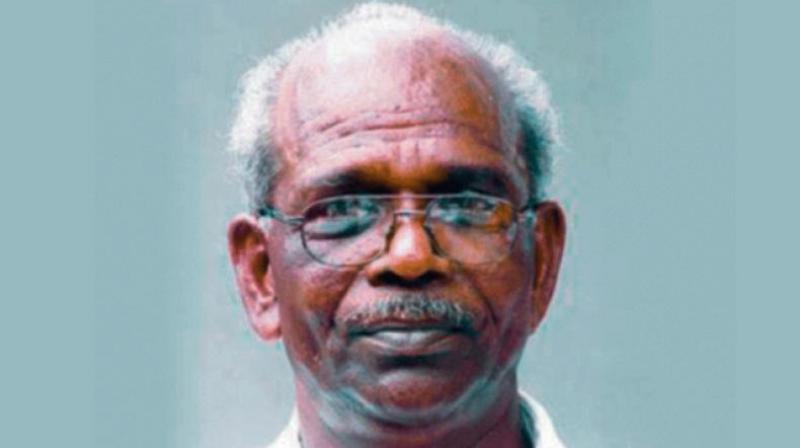Supreme Court to hear if M M Mani right' on Pompilai

New Delhi: A five-judge Constitution Bench of the Supreme Court is likely to examine whether the statement of Power Minister M.M. Mani, allegedly derogatory to women (Pompilai Orumai), will come under the right to freedom of speech and expression. A three-judge bench of Chief Justice Dipak Misra and justices A.M. Kanwilkar and D.Y. Chandrachud gave this indication to counsel Renjith Marar, for George Vattukulam, who challenged Kerala High Court’s order rejecting his plea for registration of FIR against Mr. Mani for his remarks. (According to the minister’s statement “activists and leaders of the women’s collective had regularly indulged in an orgy of drinking and other activities during their month-long agitation last year”)
Justice Misra asked the counsel to withdraw the special leave petition and file an impleading application before the Constitution Bench, which is to decide whether the right to free speech will include the right to insult other person’s right to dignity, protected under Article 21. Petitioner George Vattukulam submitted that Mr. Mani delivered a speech in April, spiced with derogatory statements, outraging the modesty of women. He argued that such a derogatory statement violated the decency and morality of women, governed by Article 19(2) of the Constitution. The freedom of speech is curbed by reasonable restrictions laid down in Article 19(2).
The petitioner approached the apex court after the High Court refused to entertain the petition. The police commissioner did not find Mr Mani’s abuses a cognizable offence, which was why it was imperative that the Court should formulate guidelines or a model code of conduct to regulate the behaviour of elected representatives. As the High Court refused to entertain the writ petition, the petitioner approached the apex court. The appellant argued that such a derogatory statement violated the decency and morality of women, governed by Article 19(2) of the Constitution. The freedom of speech is curbed by reasonable restrictions laid down in Article 19(2). The SLP raised important questions of law- whether the right to dignity is a fundamental right coming under Article 21, which could be exercised against any person, including a minister, being a public servant?

